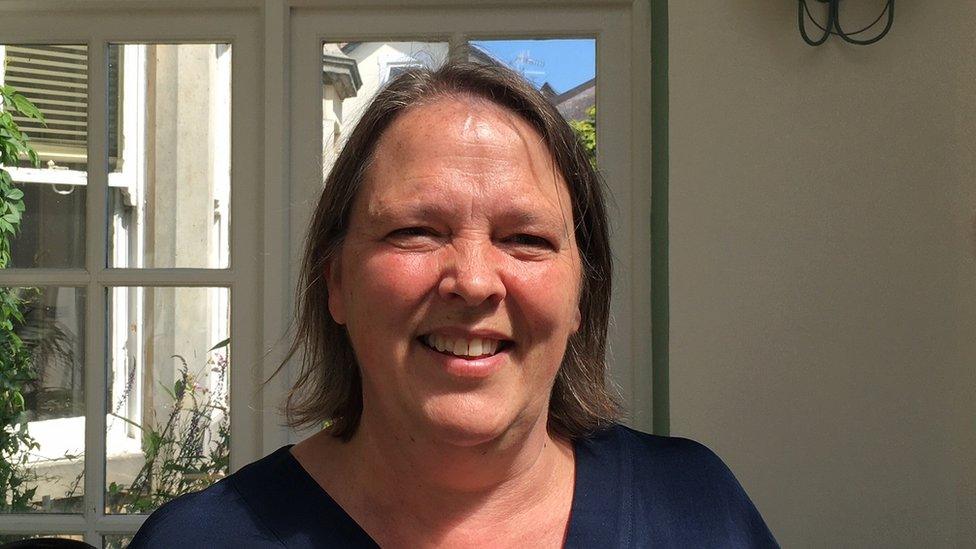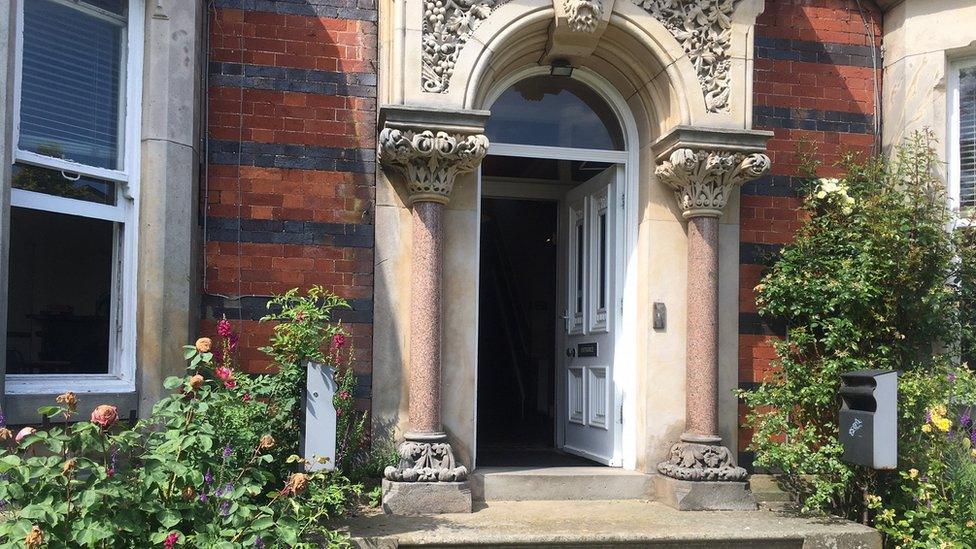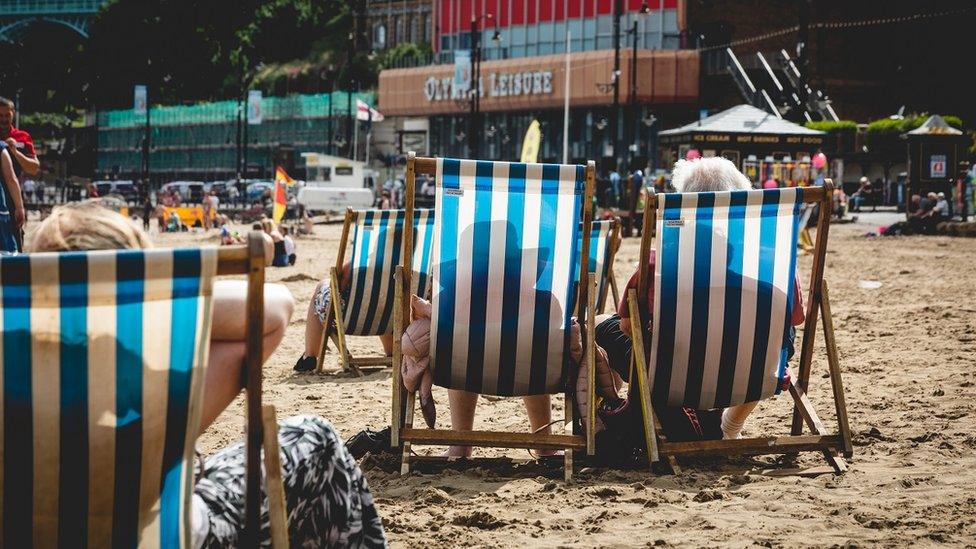'Ghost school' with no students for a second year
- Published

Alison Drew says the language school in Scarborough should be crowded with students
For English language schools, the vocabulary that's been most important in recent times has been "empty".
Because since the pandemic began last year, many language schools have not had any overseas students to teach.
Dan Methven, who teaches in the Anglolang school in Scarborough, says for two summers now they have had a "ghost school" without students.
English UK, representing language schools, says the sector, worth £1.4bn each year, is in danger of collapse.
Language schools have complained that their problems have been overlooked, with fee-paying overseas students still staying away because of worries about Covid and travel restrictions.
Missing two summers
At the Anglolang school, in the North Yorkshire resort town, there should be about 2,500 students coming for English lessons each year, from countries such as Spain and Italy, says academic manager Alison Drew.
"We're a forgotten industry," she says, walking through empty classrooms and the school's big garden which would usually be packed with teenagers heading out on trips.

In a series of special reports, BBC News has been looking at the challenges and opportunities in seaside towns such as Scarborough.

As well as the worsening financial pressure on the school, she says there is a wider loss to the seaside town's local economy.
"Students pay to stay with host families, we take them out on excursions, 10 coaches at a time. There's a knock-on effect," she says.

The doors are open but there are no students to teach this summer
"Imagine any business with 16 months of no money," says Mr Methven, a senior teacher at the school. "Missing one summer was inconceivable, missing two is ridiculous."
He says while other parts of tourism and hospitality are getting back on their feet, language schools are still effectively closed, when parents are unwilling to risk sending their children overseas during the pandemic.
The cancellations started before the official lockdown last March, he says, and in such a seasonal business this year has more or less been written off, meaning it will have been two years without students.
As well as the town's missing income, the teachers are disappointed about the cultural exchanges being lost.
"It's a really important part of young people's lives, the first time they've been away from home," says Mr Methven.
'Brink of collapse'
Staff at the Anglolang school have been furloughed, but the teachers are worried about how long such private schools can survive.
A group of 36 MPs have written to Boris Johnson calling for support for a language-teaching sector they say is of "huge national strategic importance".
The MPs warn that many language schools are on the "brink of collapse", putting at risk 35,000 jobs and the £1.4bn brought each year into local economies.

The wider seaside economy is losing out from the lack of language students
"As a seasonal industry relying on inbound tourism, there is a very real risk that many of these businesses will close," says the letter signed by MPs, including Andrew Lewer and Sir Graham Brady.
Jodie Grey, chief executive of English UK, said: "We cannot now see any prospect of significant recovery until 2022."
She said some language schools, such as Anglolang, had received help with business rates from councils - but others were still facing charges which she said could force them to close.
A spokeswoman for the Department for Business (BEIS) said: "We appreciate the significant impact the pandemic has had on businesses, including English language schools, which is why we have backed them with our unprecedented £352bn package of support.
"The furlough scheme and support for the self-employed is also in place until September, and eligible businesses continue to benefit from business rates relief of 75% over the year, VAT cuts and the Recovery Loan Scheme."